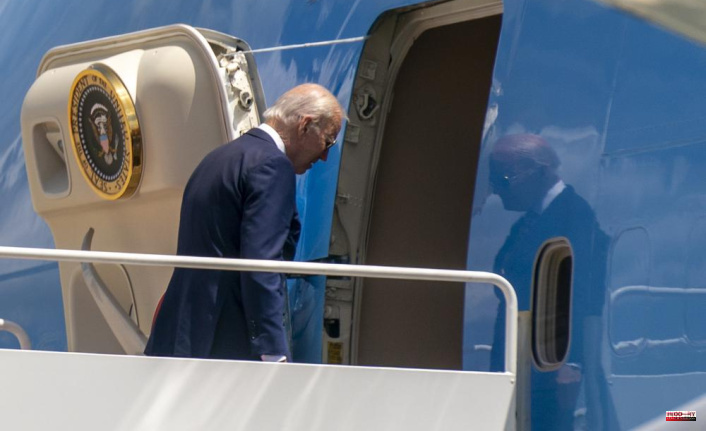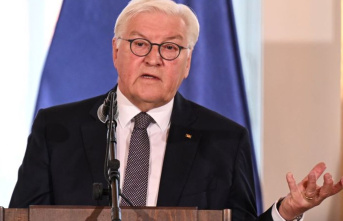Joe Biden plans to use his trip to Asia to prove that friendships have a way to grow and to pay dividends. The six-day trip will begin in South Korea and end in Japan on Friday. This is at a time of global events that are changing the foundations for the global order.
The coronavirus pandemic caused disruption in supply chains and exposed the weaknesses of a trade system that was primarily focused on high profits for corporations and low prices for consumers. After Russia invaded Ukraine, intrigues from the Cold War era returned.
Although the United States and other wealthy democracies, including Japan and South Korea, joined forces to help Ukraine and punish Russia in a joint effort to aid them, not all countries were willing to join the alliance. China, India, and other countries have tried to maintain cordial relations with Russia while not violating the sanctions.
Biden is determined to prove that America's true power lies in its ability to influence others and make friends, rather than its military and economic capabilities. Here are some of the main issues and themes that Biden will be discussing during his visit.
Because of trade and wartime history disputes, relations between Japan and South Korea are at their lowest point in decades. These are the rifts that both countries' new leaders seem willing to heal. Biden could be a potential interlocutor who could help them get closer.
Yoon Suk Yeol, a South Korean politician, assumed the presidency one week ago in the hope of improving relations with Japan. Fumio Kishida (Japan's Prime Minister), spoke to Yoon via phone on the day following his March election victory. He stated that "sound relations" are essential for international and regional peace and stability.
Kishida believes that Russia's invasion in Ukraine is threatening the rules-based order. Japan is concerned that the conflict that started in February could encourage China to take over territories in the Pacific. This is why it seeks better relations with South Korea. Yet, Kishida missed Yoon's May 10, inauguration and sent his foreign minister. The U.S. has an existing relationship with both of these countries so focusing on the common interests of all three nations is one way to improve relations.
NORTH KOREAN PRISE COOKER
Biden's visit coincides with a rising threat from North Korea’s nuclear weapons program and missile program. Kim Jong Un, the authoritarian leader of North Korea, is trying to get the United States to recognize the North as a nuclear country. He's also out to make economic and security concessions from a position that's strong.
Kim has already conducted 16 rounds in missile testing this year. This includes the first flight in almost five years of an intercontinental missile. As the U.N Security Council is still divided by Russia's war against Ukraine, Kim is trying to capitalize on a favorable climate to advance his weapons program.
His pressure campaign will not be slowed by the challenges presented by a declining economy and an increasing COVID-19 epidemic affecting 26 million people who aren't vaccinated. Jake Sullivan, White House national security advisor, says U.S intelligence indicates that there is a "genuine chance" that North Korea will conduct another nuclear or ballistic missile test in the vicinity of Biden's visit.
For more than three decades, nuclear negotiations between Washington and Pyongyang stalled over disagreements about how to ease crippling U.S. sanctions in return for North Korean disarmament.
STORMS AT HOME
Biden cannot escape the turmoil raging through the U.S., even half a globe away.
Fears about the economy are causing the stock market to plummet. Despite efforts to import baby formula and increase domestic supply, the shortage of baby formula is frustrating families. The trauma of the massacre in Buffalo, New York and the racist motives behind the attack are still fresh. Inflation at an almost 40-year high and rising gasoline prices are just two of the many problems that face Americans.
While the president might want to draw attention to his efforts abroad, he will likely be asked tough questions about what is happening in America.
THE QUAD
It's meeting Tuesday. But what exactly is it? The Quad is an alliance of the U.S. and Australia, India, Japan, and Japan, with the stated goal of creating a free and open Indo-Pacific region. Although the joint statement from their 2021 meeting did not mention China, many of the positions adopted by the Quad can be interpreted as a counter to China's ambitions of becoming the dominant power in Asia.
The drama this time might be internal and focus on the complexity of democracy. Because Australia holds elections on Saturday. Prime Minister Scott Morrison will be attending Tuesday's Tokyo meeting if the incumbent party wins. If his party loses, Morrison will have to quickly resign in order for Anthony Albanese, the opposition leader, to be sworn into office before the Tokyo meeting. There is also the possibility of neither party capturing a majority, or that the results are uncertain. Albanese may be allowed to attend the meeting as an observer if that happens.
THE CHINA CONUNDRUM
China is closely watching Biden's visit. China is closely watching the U.S. and its allies' visit to China. While China is a key trade partner, rivalries persist because their shared economic interests often reveal conflicting value systems. The relationship between the U.S. and China is increasingly seen as one of competition.
Date Of Update: 23 May 2022, 19:47











